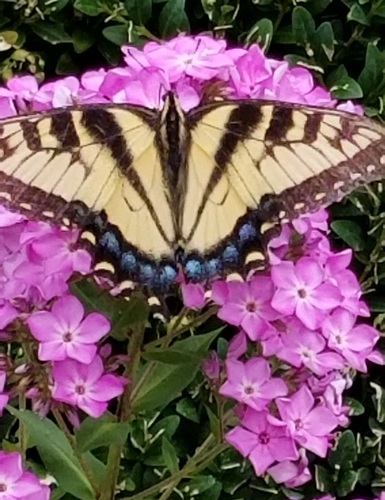Pollinators for Productive Gardens

Pollinators are the pillars of production in the garden. They are champion contributors to our food supply and to the health and stability of our environment. Read on to learn more about the many roles pollinators play, and how you can host these marvels.
Who are the Pollinators?
Bees, birds, butterflies, flies, moths, and wasps are some of the main pollen workers, with bees being one of the most prolific groups. Bees, by design, collect and spread pollen, while others transfer pollen on their bodies from flower to flower.
The Importance of Pollen
*Plant growth depends on pollen. About 75% of flowering plants on earth are pollinated, which fosters fertilization, seed development, and fruit production.
*About 80% of the 1,400 food crops around the world are pollinated, and over a third of these global crops need pollinators to reproduce. Interestingly, pollinated edibles yield more flavorful and greater volumes of fruits.
*Food and habitats for animals are provided by pollinated plants, and the fruits and seeds they yield.
*Pollinated plants generate clean air and stabilize soil around gardens.
Help and Host Pollinators
Whether you have a small plot or large garden, you can easily host beautiful pollen workers! One of the keys to success is to plant native varieties, as these will be the most pollen rich. What’s more, native plants are low maintenance, long-lived, and disease resistant. These are the perfect ingredients for healthy, bountiful gardens.
Wondering how to start? Take a look at these regionally specific recipe cards for native pollinator gardens for fantastic ideas. There are cards for 9 regions in the country, which include many options by season. Suggestions include Beebalm and New England Aster in the Northeast; Purple Sage and Desert Marigold for Southwest areas; Common Yarrow and Western Coneflower for Northwest locales; Eastern Columbine and Butterfly Milkweed for Midwest gardens. These are just some examples.
Once you’ve planned the garden, here are key tips for preserving pollinator-friendly plants to maximize pollen worker activity. One is to maintain a healthy garden with proper watering, feeding and weeding. Follow care instructions provided with the plants.
And it is imperative to shield all your plants from deer destruction with top rated, eco friendly, Bobbex Deer Repellent. Many of the plants that appeal to your pollinators and you, also attract deer. Enlist the help of Bobbex, the gentle, highly effective means for deterring deer while defending your plantings. All Bobbex formulas are safe for people, pets, wildlife and aquatic life.
Protect The Pollinators
Pollinators are the ultimate garden workhorses, tirelessly maintaining the flow and transfer of pollen. The most important way to ensure they stay healthy and continue working is to keep their “homes” robust and safe. This means protecting pollinator-friendly plants from deer damage. With Bobbex as garden guard, the pollinators can rest assured work will continue.
